Stuck in Limbo, Venezuelans Share Their Hopes and Fears
Venezuelans stranded on the other side of the closed Colombian border are torn between the desire to see their families again, and fear of regime violence.


Photos by Gabriela Mesones Rojo
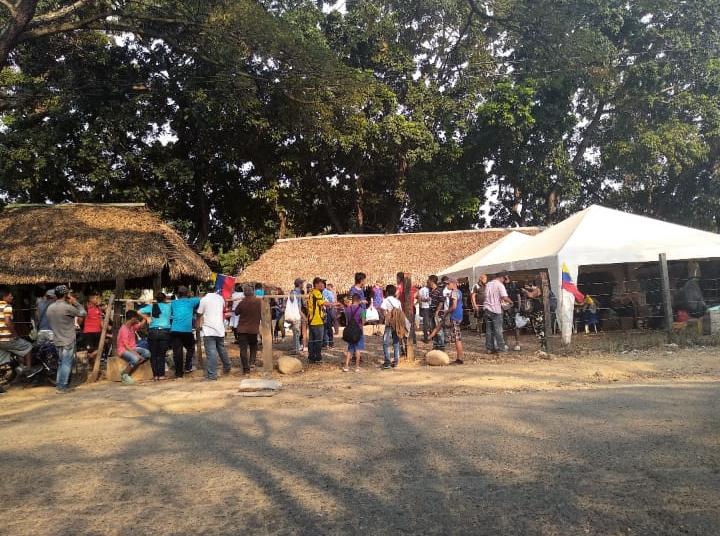 After the Venezuelan borders were closed on February 23rd, more than 700 Venezuelans were stuck on the Colombian border after coming to Cucuta to support the humanitarian aid delivery to Venezuelan territory. “Our plan was to come to the concert, spend the night in a shelter, and then go and join the humanitarian aid caravan. Now we’re stuck here, we can’t go back because the borders are closed. If the police or military see us crossing illegally, they could put us in jail for four years. But that’s not even the scary part. Today we were told four people who were crossing under the bridge were murdered by ELN. Do you know anything about that? Can you tell me if it’s true? One of those people who left was my cousin,” said a 17-year-old refugee who had to stay behind with her mother because they were too scared to cross.
After the Venezuelan borders were closed on February 23rd, more than 700 Venezuelans were stuck on the Colombian border after coming to Cucuta to support the humanitarian aid delivery to Venezuelan territory. “Our plan was to come to the concert, spend the night in a shelter, and then go and join the humanitarian aid caravan. Now we’re stuck here, we can’t go back because the borders are closed. If the police or military see us crossing illegally, they could put us in jail for four years. But that’s not even the scary part. Today we were told four people who were crossing under the bridge were murdered by ELN. Do you know anything about that? Can you tell me if it’s true? One of those people who left was my cousin,” said a 17-year-old refugee who had to stay behind with her mother because they were too scared to cross.
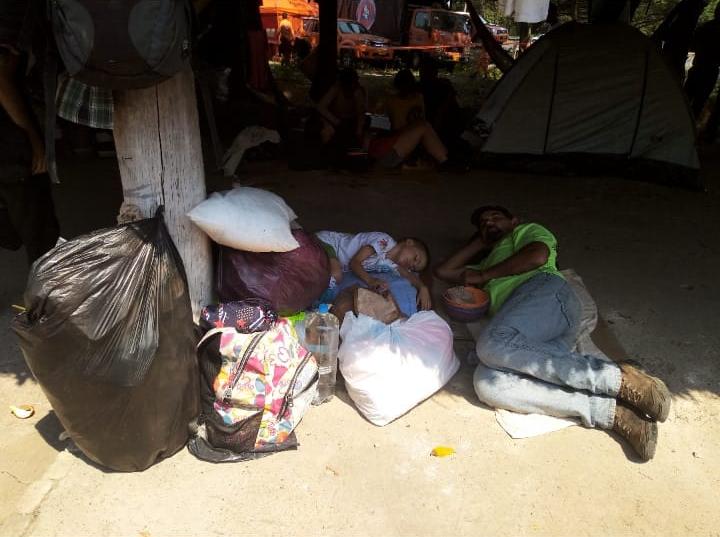 The Colombian government quickly created four new shelters in Cucuta: Tienditas, Ureña and two in La Parada. “We have 240 people here. We have food and some medicine, protection from civil defense and the Colombian Army. Our goal is to keep them safe until the border opens and they can return home safely. Still, many don’t want to go back, they’re too scared. In those cases, we have to process their legal standing as refugees.”
The Colombian government quickly created four new shelters in Cucuta: Tienditas, Ureña and two in La Parada. “We have 240 people here. We have food and some medicine, protection from civil defense and the Colombian Army. Our goal is to keep them safe until the border opens and they can return home safely. Still, many don’t want to go back, they’re too scared. In those cases, we have to process their legal standing as refugees.”
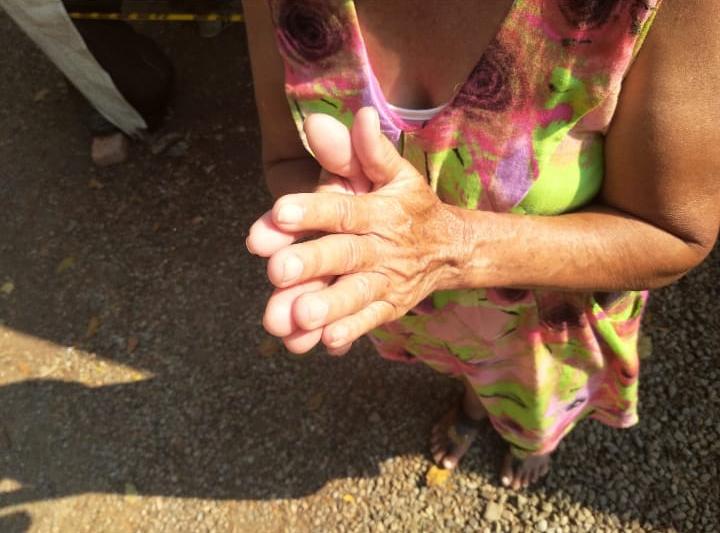 “I can’t go back. I came here to help the humanitarian aid get inside, but it didn’t. I’m old, sick. If we managed to cross the border, we’d still have to get to our homes, drive through many states and through all the policemen and crazy colectivos. We’re never going to make it home. They know we came to help Guaidó. The government thinks we’re worse than criminals. Going back to Venezuela means death. I have five daughters and a beautiful son back home. I miss them, I want to see them. But it’s a journey that will kill me. This government has taken everything from us. My mother once told me she had never loved me. It felt like a knife in my back, that’s exactly how I feel right now.”
“I can’t go back. I came here to help the humanitarian aid get inside, but it didn’t. I’m old, sick. If we managed to cross the border, we’d still have to get to our homes, drive through many states and through all the policemen and crazy colectivos. We’re never going to make it home. They know we came to help Guaidó. The government thinks we’re worse than criminals. Going back to Venezuela means death. I have five daughters and a beautiful son back home. I miss them, I want to see them. But it’s a journey that will kill me. This government has taken everything from us. My mother once told me she had never loved me. It felt like a knife in my back, that’s exactly how I feel right now.”
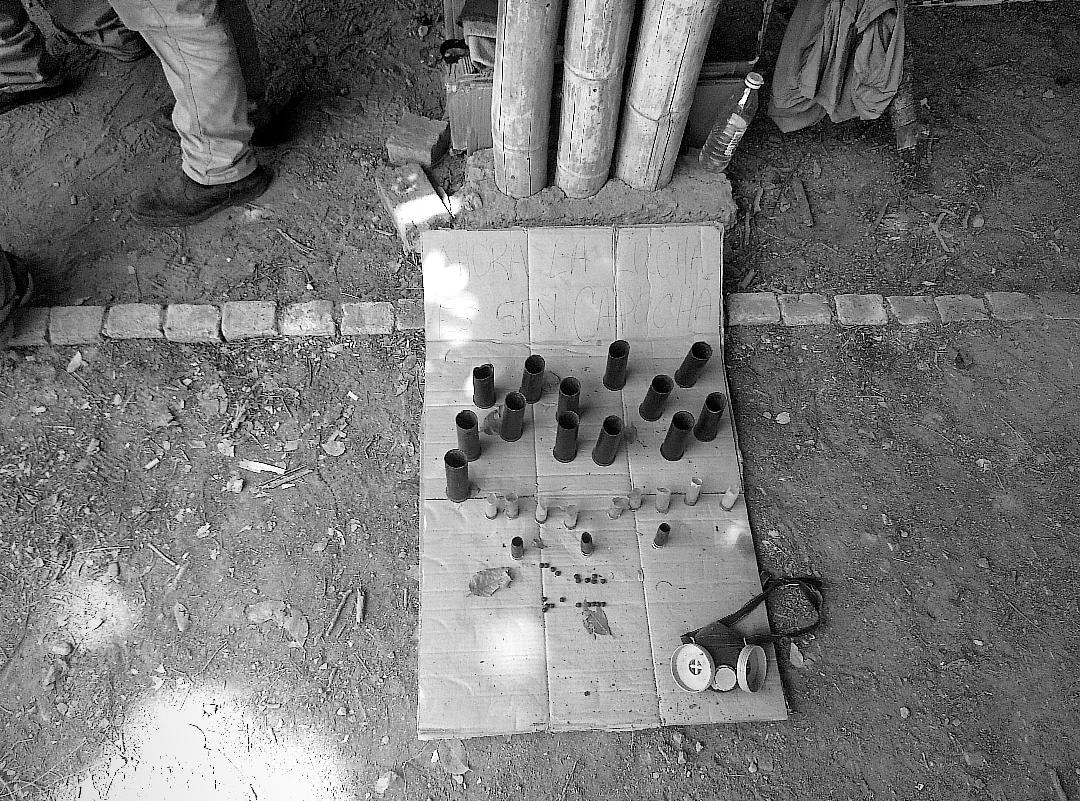 “We display a few of the tear gas canisters we found on the Ureña bridge. It’s a reminder that they will attack, and we have to fight back. We were there, on the first truck that was attacked. Some people couldn’t believe it, but we aren’t fools. We were expecting it all along. We are from Táchira, we know we have to fight back.”
“We display a few of the tear gas canisters we found on the Ureña bridge. It’s a reminder that they will attack, and we have to fight back. We were there, on the first truck that was attacked. Some people couldn’t believe it, but we aren’t fools. We were expecting it all along. We are from Táchira, we know we have to fight back.”
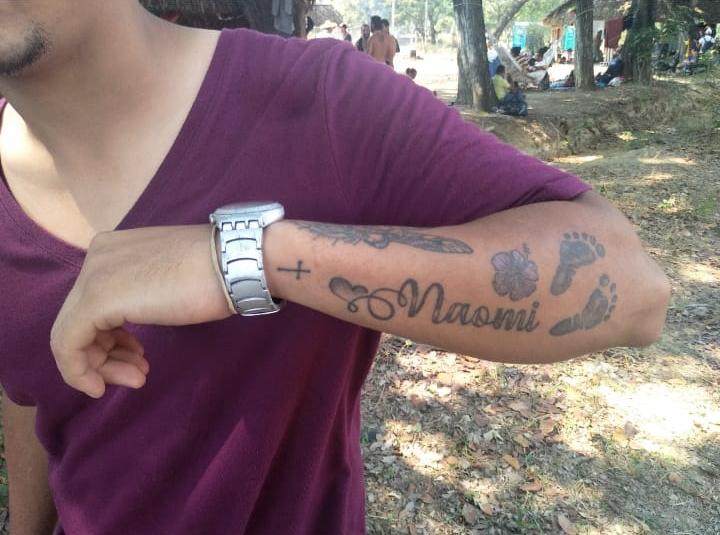 “First, my bus was robbed by colectivos on my way here. They took my money, my phone, my ID, my passport. Then, they closed the border, even though they know we’re all here on the other side. They know people cross over to flee death. I left my 4-month-old daughter on the other side because I was meant to be here only for two days. I can’t wait to get back. She’ll feel I abandoned her. I’m dying to go home, but I simply can’t cross. Crossing under the bridge is insane right now. Colectivos will just be waiting on the other side. FAES will be there too. Paracos will see you on the way. We’re scared of what the government will do to those who wanted to help the humanitarian aid get inside.”
“First, my bus was robbed by colectivos on my way here. They took my money, my phone, my ID, my passport. Then, they closed the border, even though they know we’re all here on the other side. They know people cross over to flee death. I left my 4-month-old daughter on the other side because I was meant to be here only for two days. I can’t wait to get back. She’ll feel I abandoned her. I’m dying to go home, but I simply can’t cross. Crossing under the bridge is insane right now. Colectivos will just be waiting on the other side. FAES will be there too. Paracos will see you on the way. We’re scared of what the government will do to those who wanted to help the humanitarian aid get inside.”
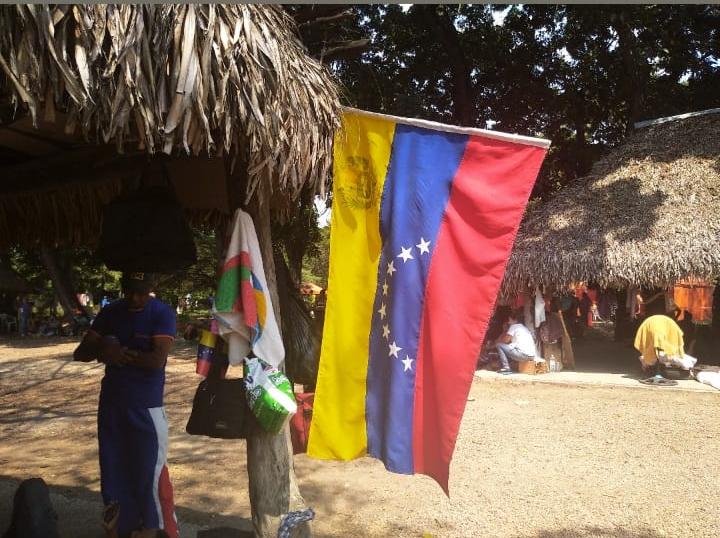 “They have treated us well here. The Colombian government has given us this space to be safe, but we still have to have our eyes open. Infiltrados are everywhere.” Ciro Alfonso Santamaria, police officer of the human rights department, confirms the presence of regime people infiltrated in the shelter: “Today we kicked eight of them out. At first they told us they were government forces, but when we checked their ID’s in our database, they weren’t. They just believe they’re government officers because they receive payment from them.”
“They have treated us well here. The Colombian government has given us this space to be safe, but we still have to have our eyes open. Infiltrados are everywhere.” Ciro Alfonso Santamaria, police officer of the human rights department, confirms the presence of regime people infiltrated in the shelter: “Today we kicked eight of them out. At first they told us they were government forces, but when we checked their ID’s in our database, they weren’t. They just believe they’re government officers because they receive payment from them.”
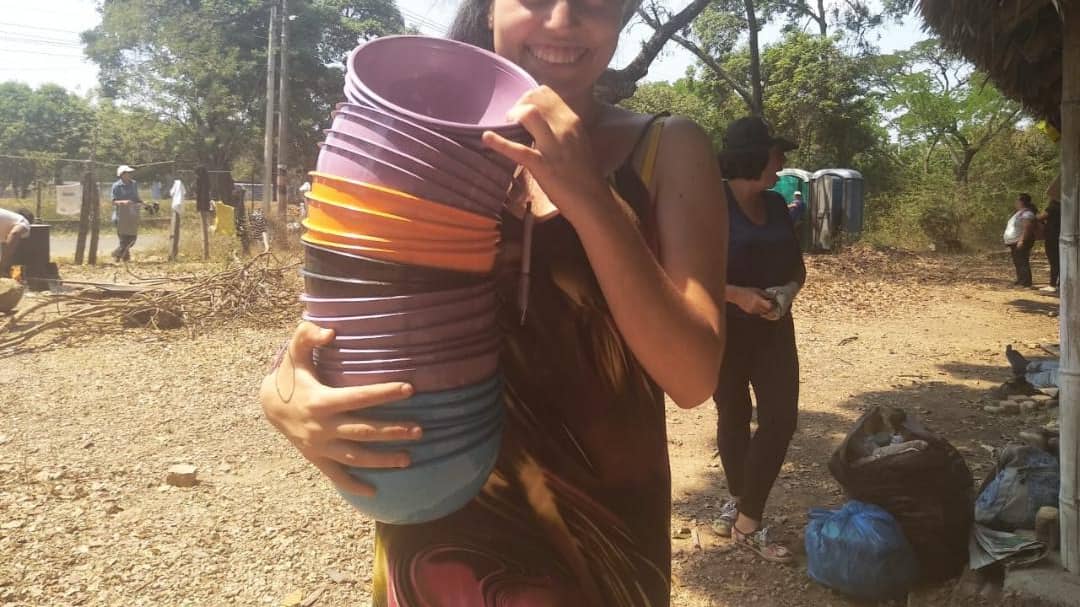 “We all help get this place running. We clean, cook, take care of each other. We’re all very different people stuck here. It’s hard to trust new people, but it’s harder to be alone in this situation.”
“We all help get this place running. We clean, cook, take care of each other. We’re all very different people stuck here. It’s hard to trust new people, but it’s harder to be alone in this situation.”
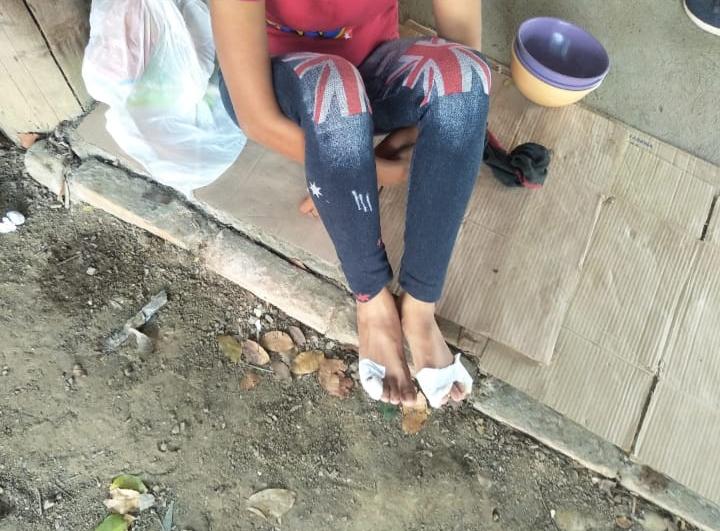 “I came the day before the concert. We were staying in the Ureña shelter, but my friend is sick and they have no medicine or good food there. We walked all the way here. We got lost, we don’t know this city. We thought we were going to sleep in the street that day, but we never stopped walking. Then we got here, but they didn’t want to take us in. We had no friends here, it’s hard to be accepted somewhere when everyone fears infiltrados. They still managed to give us a place to sleep. We just wanted to be safe through the night. The next day the organizers from Venezuelan Aid talked to us and let us in. They gave us clothes so we could wash our old ones. It’s so stressful here. I get so anxious sometimes I get panic attacks. I just want to go home but I don’t think I’ll ever do it. We’ll be stuck here forever.”
“I came the day before the concert. We were staying in the Ureña shelter, but my friend is sick and they have no medicine or good food there. We walked all the way here. We got lost, we don’t know this city. We thought we were going to sleep in the street that day, but we never stopped walking. Then we got here, but they didn’t want to take us in. We had no friends here, it’s hard to be accepted somewhere when everyone fears infiltrados. They still managed to give us a place to sleep. We just wanted to be safe through the night. The next day the organizers from Venezuelan Aid talked to us and let us in. They gave us clothes so we could wash our old ones. It’s so stressful here. I get so anxious sometimes I get panic attacks. I just want to go home but I don’t think I’ll ever do it. We’ll be stuck here forever.”
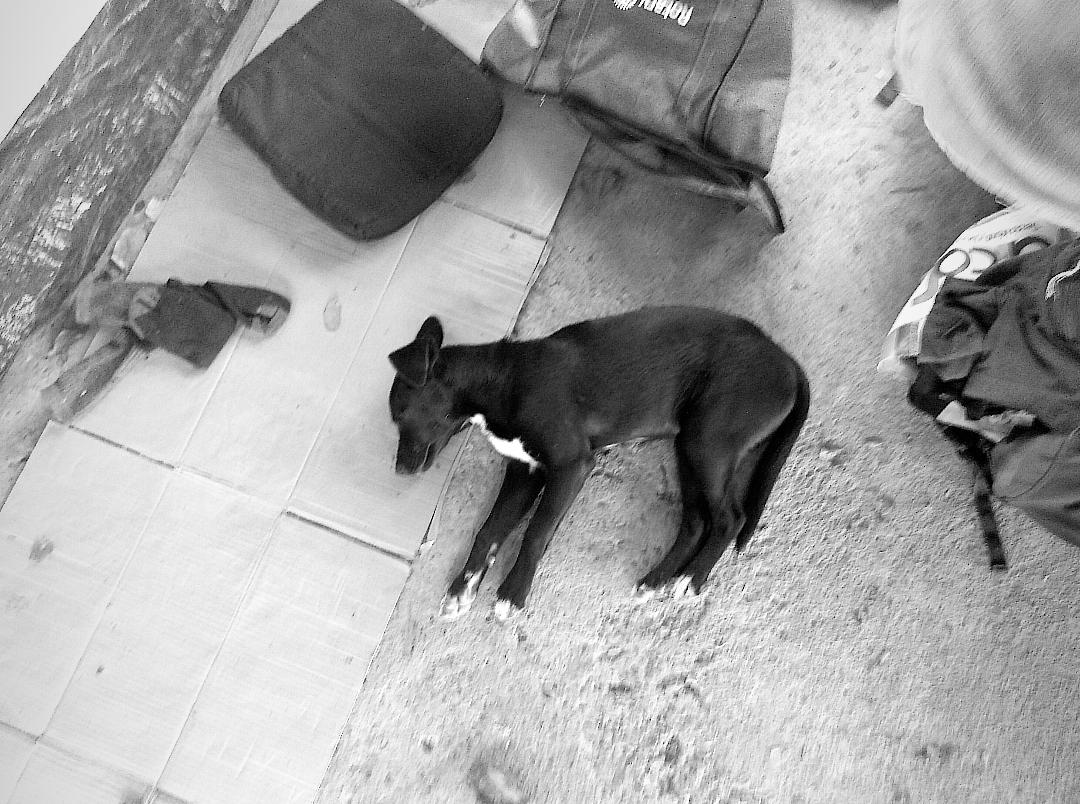 “The weather here is intense. Some of us have burn marks on our body from the sun. We go protest, but we return tired and broken. It gets so hot it’s hard to sleep sometimes. I spent my first night in the La Parada shelter, which is in a parking lot. It was unbearable. So we came here.”
“The weather here is intense. Some of us have burn marks on our body from the sun. We go protest, but we return tired and broken. It gets so hot it’s hard to sleep sometimes. I spent my first night in the La Parada shelter, which is in a parking lot. It was unbearable. So we came here.”
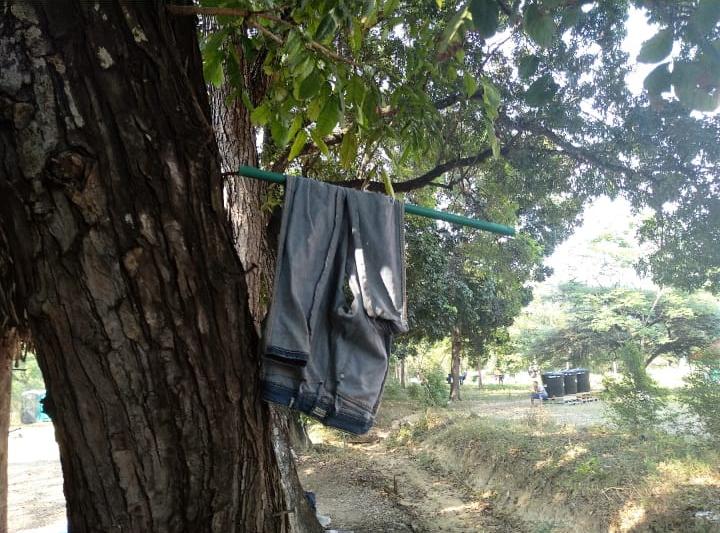 “So many people have donated food, medicine, clothes. We know some Colombians hate us, but others feel like this is happening to them too. We have seen very poor people give us what little they can. A bar of chocolate, an old shirt. It all helps when you have nothing.”
“So many people have donated food, medicine, clothes. We know some Colombians hate us, but others feel like this is happening to them too. We have seen very poor people give us what little they can. A bar of chocolate, an old shirt. It all helps when you have nothing.”
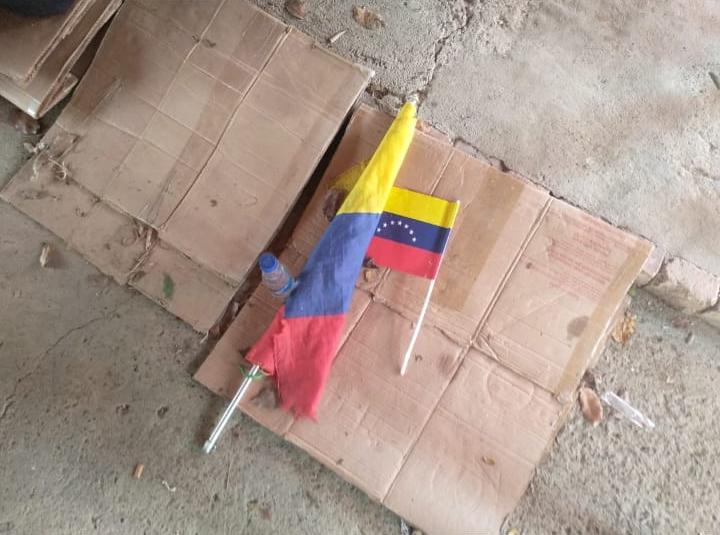 “I left Venezuela a year ago. I went to Peru. I hated it. I came back to be with my family again, but we all know a day in Venezuela is a decade in hell. Now we’re stuck here, but I’m coming back. I’m coming back to fight and take Maduro out. If I have to die, so be it, but I won’t turn my back on my country again.”
“I left Venezuela a year ago. I went to Peru. I hated it. I came back to be with my family again, but we all know a day in Venezuela is a decade in hell. Now we’re stuck here, but I’m coming back. I’m coming back to fight and take Maduro out. If I have to die, so be it, but I won’t turn my back on my country again.”
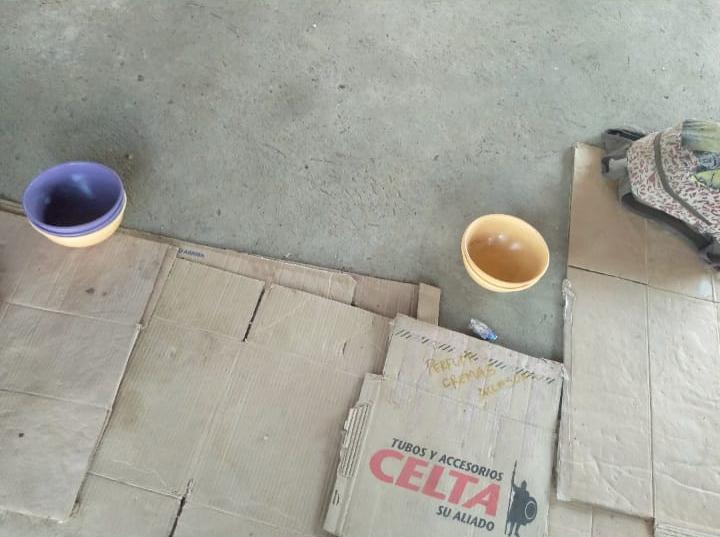 “You have to promise you won’t publish pictures with our faces. Some will stay here in Colombia, but the ones who want to come back are so afraid of what FAES and colectivos will do. We know we’ve had, and still have, infiltrados among us. There’s a guy, he says he came here to support the humanitarian aid. But another guy recognized him and confronted him: ‘I know you’re a die-hard chavista, so what are you really doing here?’. No one trusts him after that. No one wants to be close or speak to him. People change, I know, but we don’t even know what infiltrados want from us. So we imagine the worst. I think they want to kill us when we come back.”
“You have to promise you won’t publish pictures with our faces. Some will stay here in Colombia, but the ones who want to come back are so afraid of what FAES and colectivos will do. We know we’ve had, and still have, infiltrados among us. There’s a guy, he says he came here to support the humanitarian aid. But another guy recognized him and confronted him: ‘I know you’re a die-hard chavista, so what are you really doing here?’. No one trusts him after that. No one wants to be close or speak to him. People change, I know, but we don’t even know what infiltrados want from us. So we imagine the worst. I think they want to kill us when we come back.”
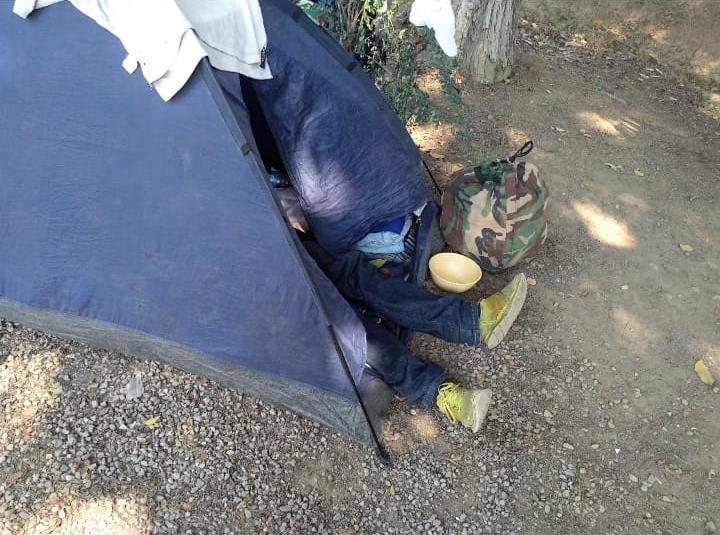 “People are surprised they got stuck here. I don’t really get it. Did they think Maduro was going to let the aid inside the country? Did they forget how insane he is? I’m taking it slow because I know we may be here a long time. They are taking good care of us. I’d rather be on this side right now. I want to go back, we all have our families back home, our jobs, our friends. But I’m not going back under the bridge. If they’re going to murder me, they’ll have to do it over the bridge, where everyone can see how they kill us.”
“People are surprised they got stuck here. I don’t really get it. Did they think Maduro was going to let the aid inside the country? Did they forget how insane he is? I’m taking it slow because I know we may be here a long time. They are taking good care of us. I’d rather be on this side right now. I want to go back, we all have our families back home, our jobs, our friends. But I’m not going back under the bridge. If they’re going to murder me, they’ll have to do it over the bridge, where everyone can see how they kill us.”
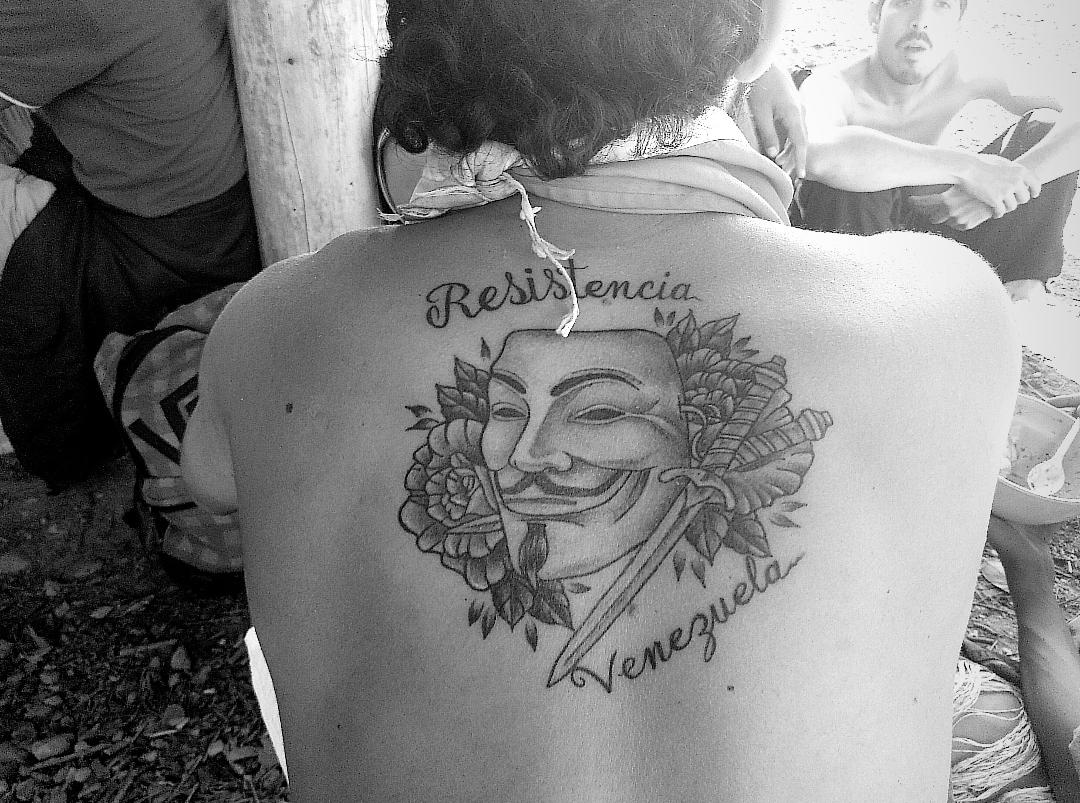 “We’re not opposition, we’re resistance. Guaidó has been good so far, but I’m not afraid to say I’m a radical. I’m from Tachira, we’re warriors. I agree with the military intervention. The world has to realize we need help. If Guaidó gave us a gun and told us to go fight for our country side by side with the USA Army, we would do it. How many would die in a war? 5,000? 10,000? 50,000? That would be less than the people who have already died due to violence and lack of food and medicine. On the other hand, I believe if you are fighting for Maduro, you simply have to die. But if Guaidó doesn’t man up and asks directly for an intervention, we’ll have to oppose him too.”
“We’re not opposition, we’re resistance. Guaidó has been good so far, but I’m not afraid to say I’m a radical. I’m from Tachira, we’re warriors. I agree with the military intervention. The world has to realize we need help. If Guaidó gave us a gun and told us to go fight for our country side by side with the USA Army, we would do it. How many would die in a war? 5,000? 10,000? 50,000? That would be less than the people who have already died due to violence and lack of food and medicine. On the other hand, I believe if you are fighting for Maduro, you simply have to die. But if Guaidó doesn’t man up and asks directly for an intervention, we’ll have to oppose him too.”
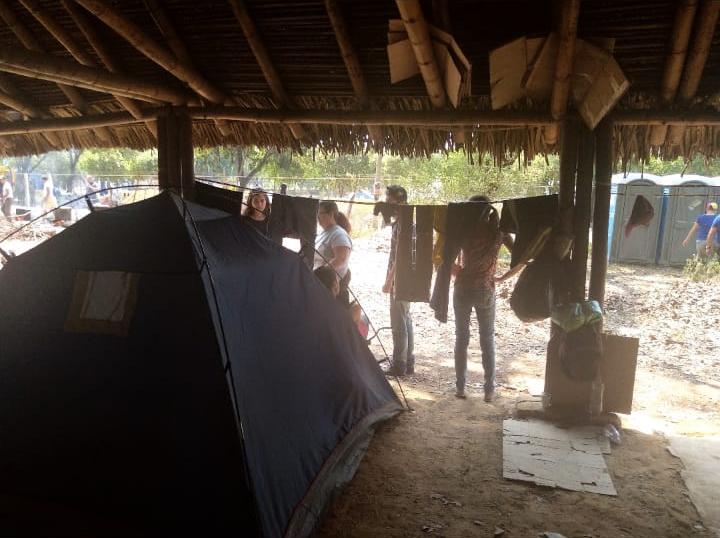 “We all try to get along but conditions are hard. There are old people, women, children. People get desperate sometimes, they cry, they scream. We all have our hopes up, we trust Maduro won’t make it till the end of the year, we trust Guaidó will make good choices. But it’s hard to be patient when you’re under these conditions. Fear is free, and so is sadness.”
“We all try to get along but conditions are hard. There are old people, women, children. People get desperate sometimes, they cry, they scream. We all have our hopes up, we trust Maduro won’t make it till the end of the year, we trust Guaidó will make good choices. But it’s hard to be patient when you’re under these conditions. Fear is free, and so is sadness.”
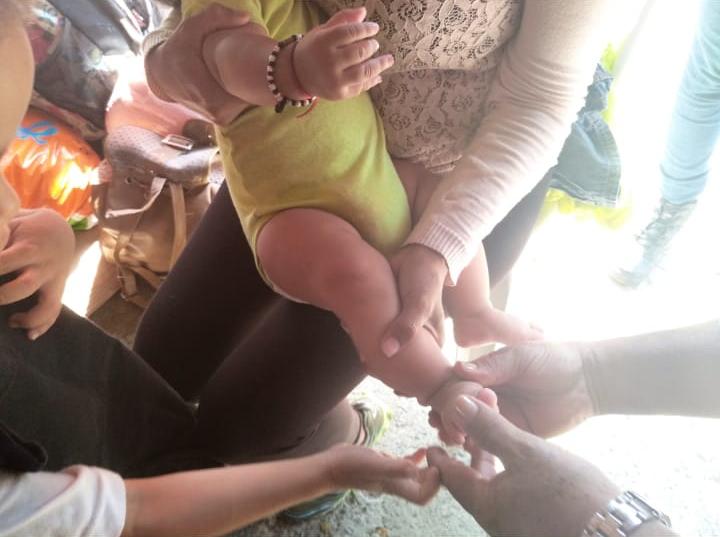 “This child is sick with a skin condition. We don’t have the medicine for his treatment, and he’s a danger for others. But he’s a baby. His mother is scared. She doesn’t want to go back to Venezuela. He’s a lovely baby, look at that smile. I’ve seen him flirt and move his body when we play music. We had to take him in. We see it as a human rights situation. We’re all in this together.”
“This child is sick with a skin condition. We don’t have the medicine for his treatment, and he’s a danger for others. But he’s a baby. His mother is scared. She doesn’t want to go back to Venezuela. He’s a lovely baby, look at that smile. I’ve seen him flirt and move his body when we play music. We had to take him in. We see it as a human rights situation. We’re all in this together.”
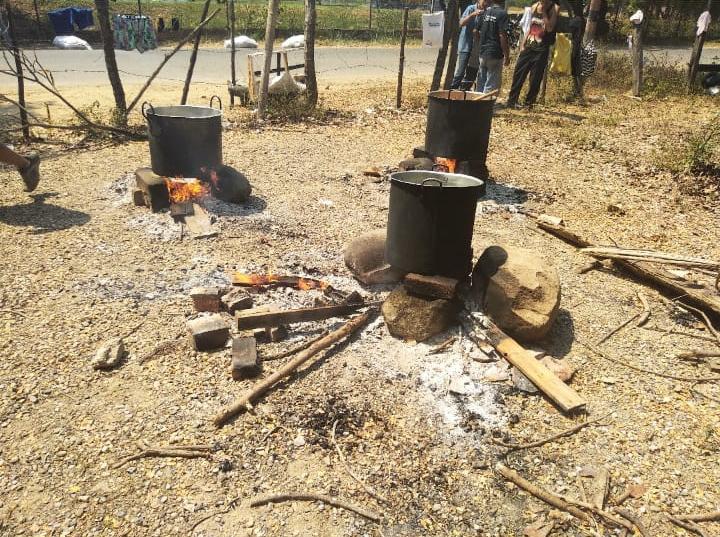 “We’re stocked with food for another week for all this people. We’re among the lucky ones. We also have three people who are amazing cooks, so people love it here. But as time goes by it gets harder and harder to receive donations. How long will this last? It’s a very peculiar situation because these people are in a limbo. Some will stay, but some will come back. We can’t process them like refugees, but they are.”
“We’re stocked with food for another week for all this people. We’re among the lucky ones. We also have three people who are amazing cooks, so people love it here. But as time goes by it gets harder and harder to receive donations. How long will this last? It’s a very peculiar situation because these people are in a limbo. Some will stay, but some will come back. We can’t process them like refugees, but they are.”
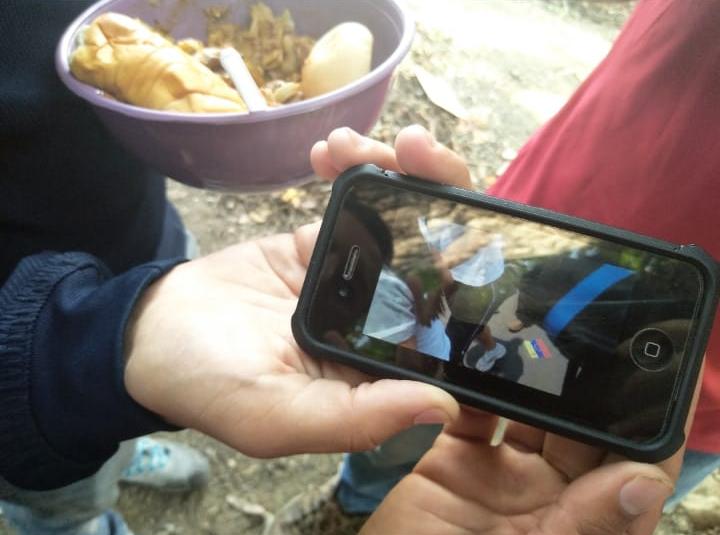 “Me and my friend came here to fight. We have so much footage of everything that happened on the 23rd. We were in the second truck and everything was chaos all of the sudden. Before we knew it, the trucks were on fire. He tried to save some boxes, while I threw the tear gas bombs into the river. We’ve always been a good team when it comes to chaos.”
“Me and my friend came here to fight. We have so much footage of everything that happened on the 23rd. We were in the second truck and everything was chaos all of the sudden. Before we knew it, the trucks were on fire. He tried to save some boxes, while I threw the tear gas bombs into the river. We’ve always been a good team when it comes to chaos.”
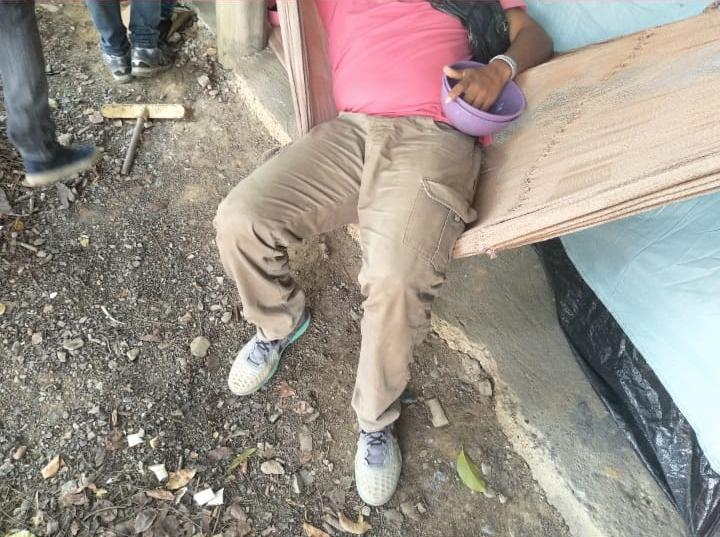 “I like hard work. I’ve been working since I was 12 years old. Now, I just sit here, look at what others do, what they talk about. It’s been four days and I’m already losing my mind. I need to go back home to my wife. I miss the way she screams at me when I don’t do the dishes. Can you imagine that? Missing someone at their worst? I’m a mechanic and work has never been harder, but I worry about how my wife will find money for herself. I got my phone stolen on my way here. I have no way to contact her. I don’t know if she’s eating well, I don’t know how she’s doing. I’m definitely losing my mind in this place.”
“I like hard work. I’ve been working since I was 12 years old. Now, I just sit here, look at what others do, what they talk about. It’s been four days and I’m already losing my mind. I need to go back home to my wife. I miss the way she screams at me when I don’t do the dishes. Can you imagine that? Missing someone at their worst? I’m a mechanic and work has never been harder, but I worry about how my wife will find money for herself. I got my phone stolen on my way here. I have no way to contact her. I don’t know if she’s eating well, I don’t know how she’s doing. I’m definitely losing my mind in this place.”
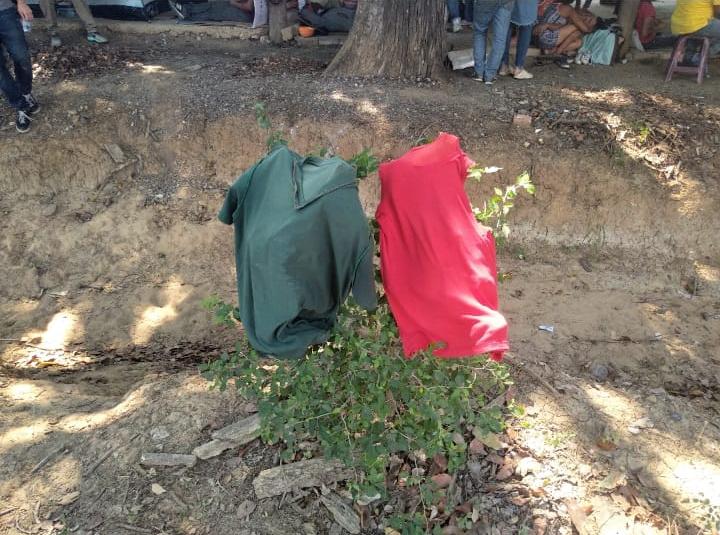 “I worked for VP for a long time as a regional coordinator. I’m good with people and people are usually good with me. But it’s all irrelevant in these situations. People are suspicious of others. I understand completely. You have to keep your eyes open, your heart closed. You’ll lose it in you don’t. I like what’s happening politically. I trust Guaidó, I trust Leopoldo. I just have to sit tight and wait for them to solve this. But it will take time. Nothing big happens overnight. Some people pray a lot here, for themselves and those they left behind. But I believe in politics. This humanitarian aid was a strategy, it was a trap, and Maduro fell for it. Soon, other countries will show their support. Soon someone will lend us an army, or we will build one ourselves.”
“I worked for VP for a long time as a regional coordinator. I’m good with people and people are usually good with me. But it’s all irrelevant in these situations. People are suspicious of others. I understand completely. You have to keep your eyes open, your heart closed. You’ll lose it in you don’t. I like what’s happening politically. I trust Guaidó, I trust Leopoldo. I just have to sit tight and wait for them to solve this. But it will take time. Nothing big happens overnight. Some people pray a lot here, for themselves and those they left behind. But I believe in politics. This humanitarian aid was a strategy, it was a trap, and Maduro fell for it. Soon, other countries will show their support. Soon someone will lend us an army, or we will build one ourselves.”
Caracas Chronicles is 100% reader-supported.
We’ve been able to hang on for 22 years in one of the craziest media landscapes in the world. We’ve seen different media outlets in Venezuela (and abroad) closing shop, something we’re looking to avoid at all costs. Your collaboration goes a long way in helping us weather the storm.
Donate




